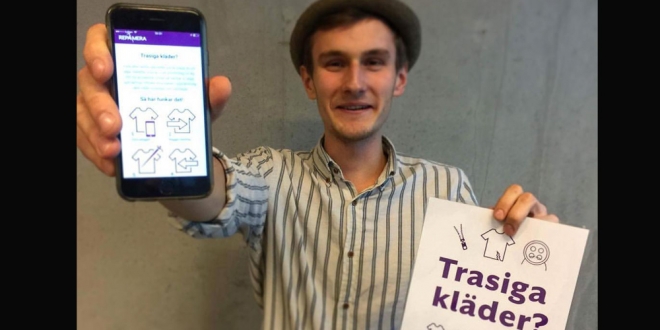Malmö has become a hotbed for startup companies. What makes Sweden’s third largest city an entrepreneurial powerhouse?
Jeremie Poirier is the co-head of Malmo Startups, a community-building organization that connects people to startups, and startups to investors. According to Poirier, part of the reason Malmö is so hospitable for emerging companies is the city’s spirit of collaboration.
“People in the ecosystem are very connected to each other,” says Poirier.
There are a host of organizations, funded publicly and/or privately, in Malmo and the surrounding area that aim to inspire, develop, and promote startups. But despite the amount of these organizations, and the relatively small area they serve, Poirier says there’s little territorial fighting.
Another factor is the proximity of young talent. Lund University, home to the student business catalyst VentureLab, is only twenty kilometers from Malmo, and the nascent Malmo University is quickly proving itself a breeding ground for creativity.
Henning Gillberg was a first-year Product Design student at Malmo University when he organized a class trip to visit Green Furniture, a startup hosted at Minc (a publicly-funded combination incubator, accelerator, and workspace, twenty meters from Malmö University). A month later he began working as a consultant for Green Furniture, and, six months after that, he launched his own company: Repamera, a service that connects people needing clothing repairs with tailors.
“I didn’t come to Malmö thinking I was going to start a business,” says Gillberg, “I guess I was inspired by the scene here.”
Now in the second year of his studies, Gillberg continues to work for Green Furniture while expanding Repamera. He also lauded Malmö’s collaborative culture, saying his contacts from Minc were essential in helping him develop his business. He went on to say that Swedish culture’s emphasis on modesty and humbleness resulted in experienced business people being willing to help out aspiring entrepreneurs.
“Successful people in Sweden aren’t buying 15 sport cars for themselves,” he said, “they’re giving back.”
For instance, Jeremie Poirier says many of the investors Malmö Startups works with invest money they have acquired from their own successful tech exits. But it’s not only money that’s passed down; Poirier says it’s not too difficult to get a meeting with almost anyone in the startup scene in Malmö, regardless of their job title, which is something Poirier (who is Canadian) attributes to the egalitarian principles of Swedish society.
Collaboration seems to be paying off for Malmö, and for Sweden as a whole: Malmö was called the world’s 4th most inventive city by a Forbes contributor in 2013, and Sweden was just named Forbes’ 2017 “Best Country For Business.”






